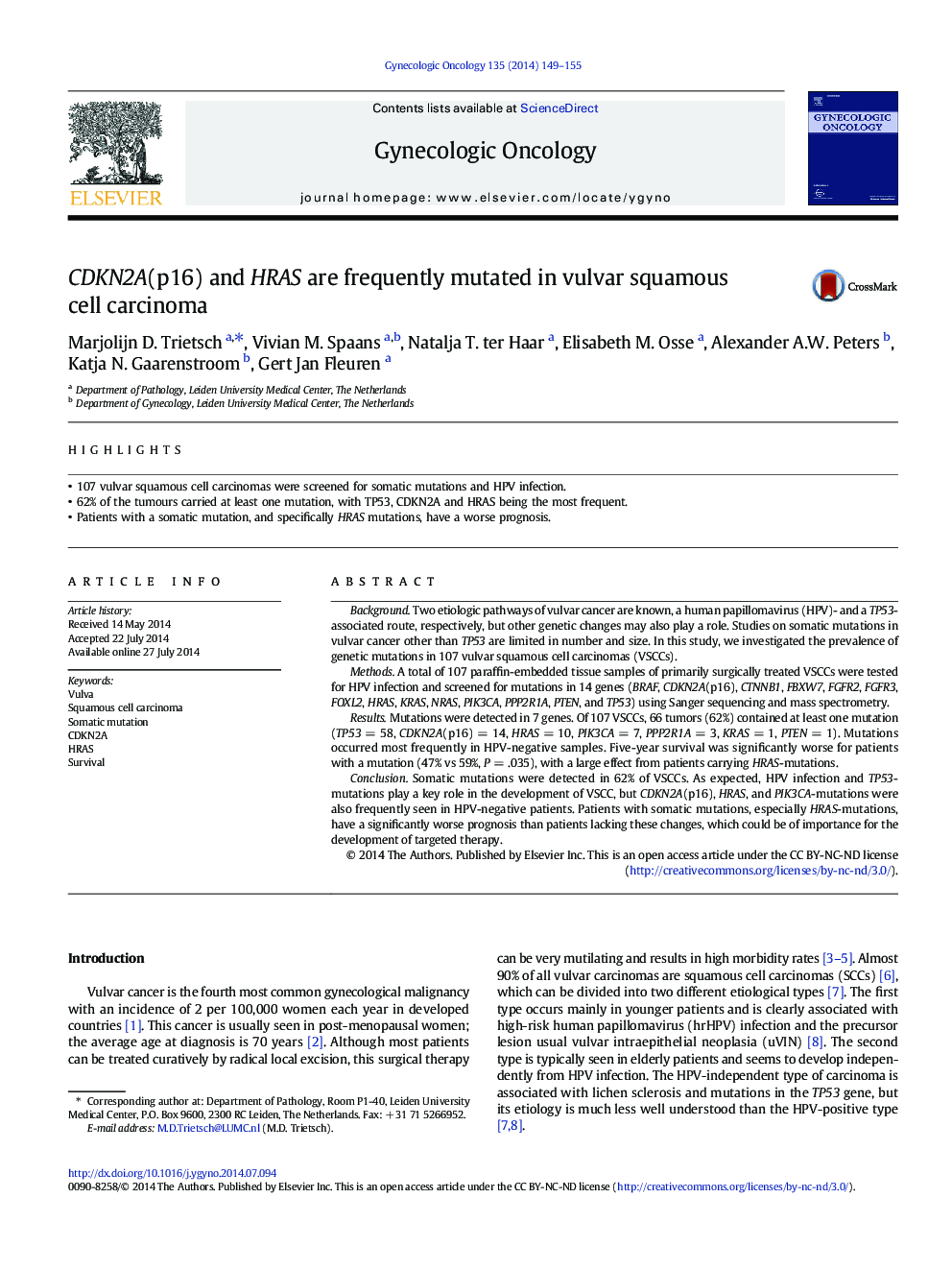| کد مقاله | کد نشریه | سال انتشار | مقاله انگلیسی | نسخه تمام متن |
|---|---|---|---|---|
| 6185180 | 1254355 | 2014 | 7 صفحه PDF | دانلود رایگان |

- 107 vulvar squamous cell carcinomas were screened for somatic mutations and HPV infection.
- 62% of the tumours carried at least one mutation, with TP53, CDKN2A and HRAS being the most frequent.
- Patients with a somatic mutation, and specifically HRAS mutations, have a worse prognosis.
BackgroundTwo etiologic pathways of vulvar cancer are known, a human papillomavirus (HPV)- and a TP53-associated route, respectively, but other genetic changes may also play a role. Studies on somatic mutations in vulvar cancer other than TP53 are limited in number and size. In this study, we investigated the prevalence of genetic mutations in 107 vulvar squamous cell carcinomas (VSCCs).MethodsA total of 107 paraffin-embedded tissue samples of primarily surgically treated VSCCs were tested for HPV infection and screened for mutations in 14 genes (BRAF, CDKN2A(p16), CTNNB1, FBXW7, FGFR2, FGFR3, FOXL2, HRAS, KRAS, NRAS, PIK3CA, PPP2R1A, PTEN, and TP53) using Sanger sequencing and mass spectrometry.ResultsMutations were detected in 7 genes. Of 107 VSCCs, 66 tumors (62%) contained at least one mutation (TP53Â =Â 58, CDKN2A(p16)Â =Â 14, HRASÂ =Â 10, PIK3CAÂ =Â 7, PPP2R1AÂ =Â 3, KRASÂ =Â 1, PTENÂ =Â 1). Mutations occurred most frequently in HPV-negative samples. Five-year survival was significantly worse for patients with a mutation (47% vs 59%, PÂ =Â .035), with a large effect from patients carrying HRAS-mutations.ConclusionSomatic mutations were detected in 62% of VSCCs. As expected, HPV infection and TP53-mutations play a key role in the development of VSCC, but CDKN2A(p16), HRAS, and PIK3CA-mutations were also frequently seen in HPV-negative patients. Patients with somatic mutations, especially HRAS-mutations, have a significantly worse prognosis than patients lacking these changes, which could be of importance for the development of targeted therapy.
Journal: Gynecologic Oncology - Volume 135, Issue 1, October 2014, Pages 149-155